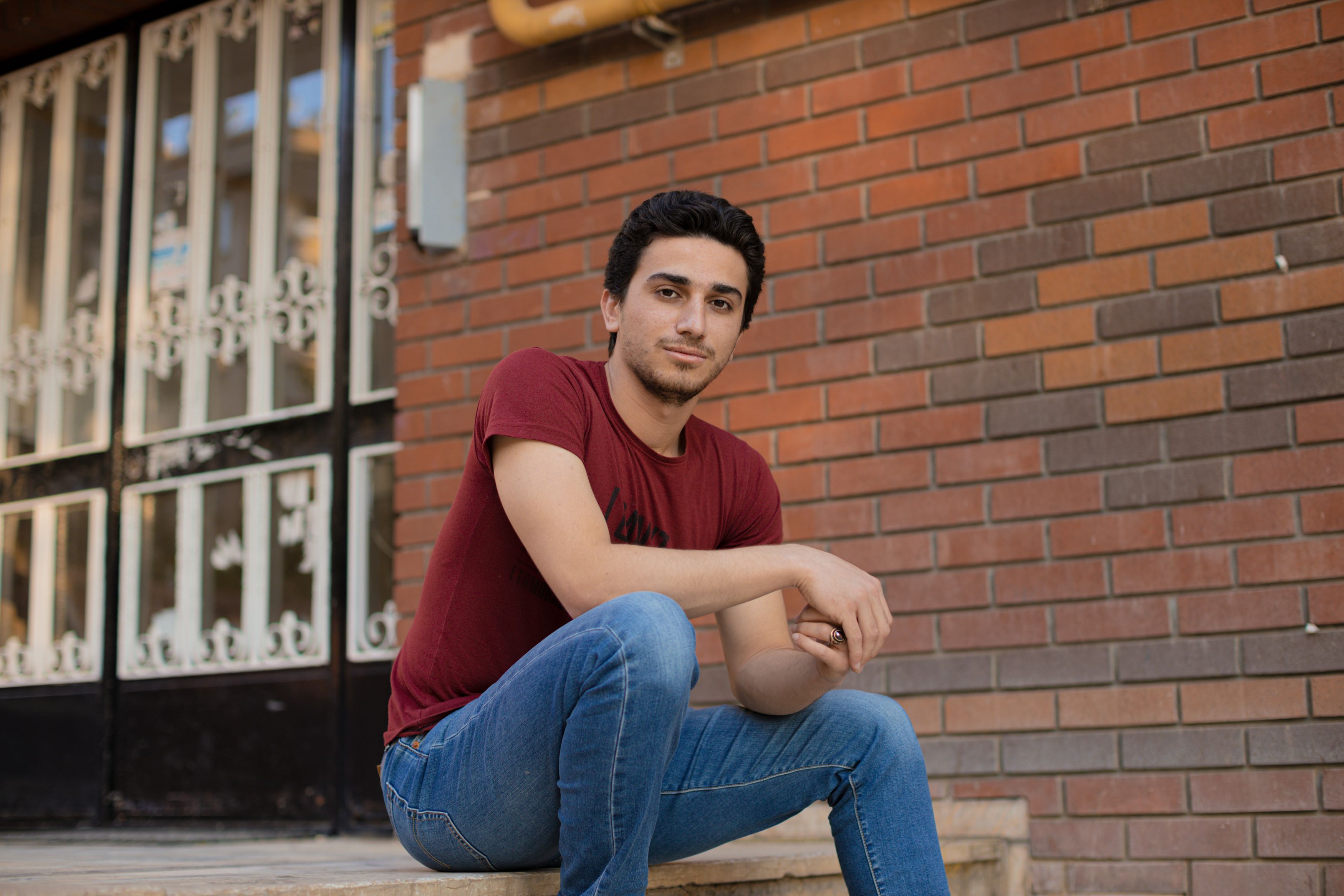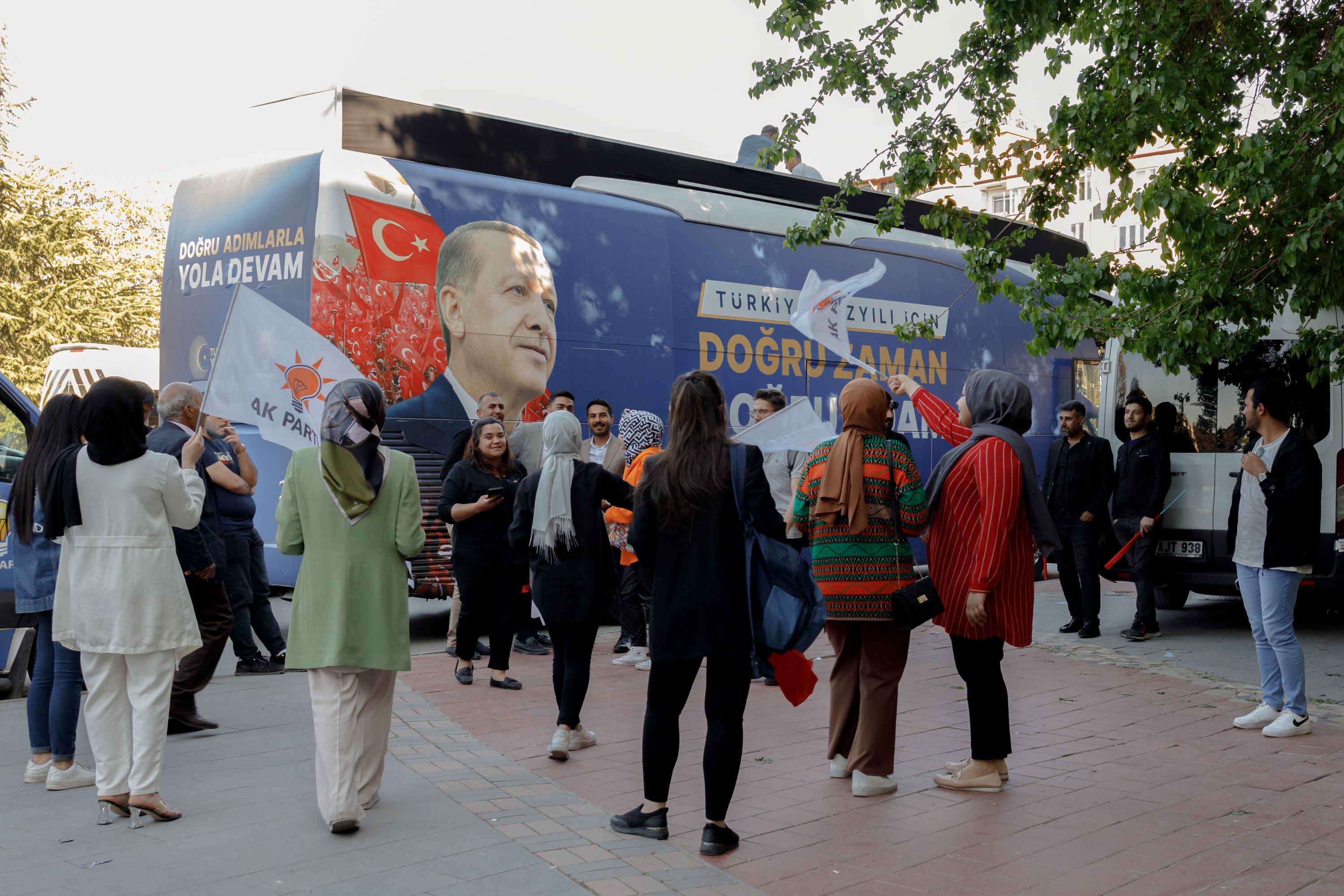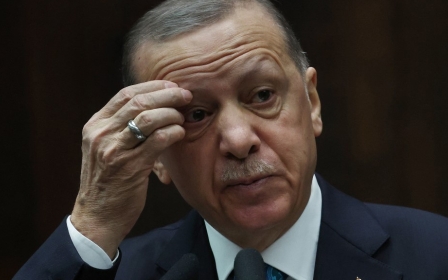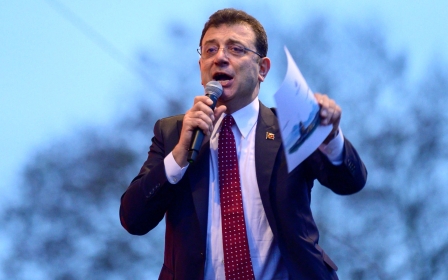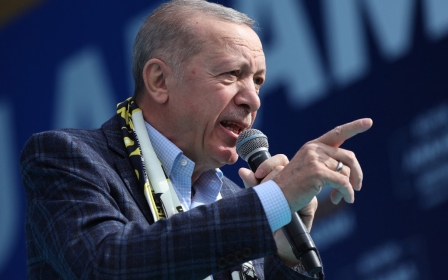Turkey elections: Turkish-Syrian voters see Erdogan as 'lesser of two evils'
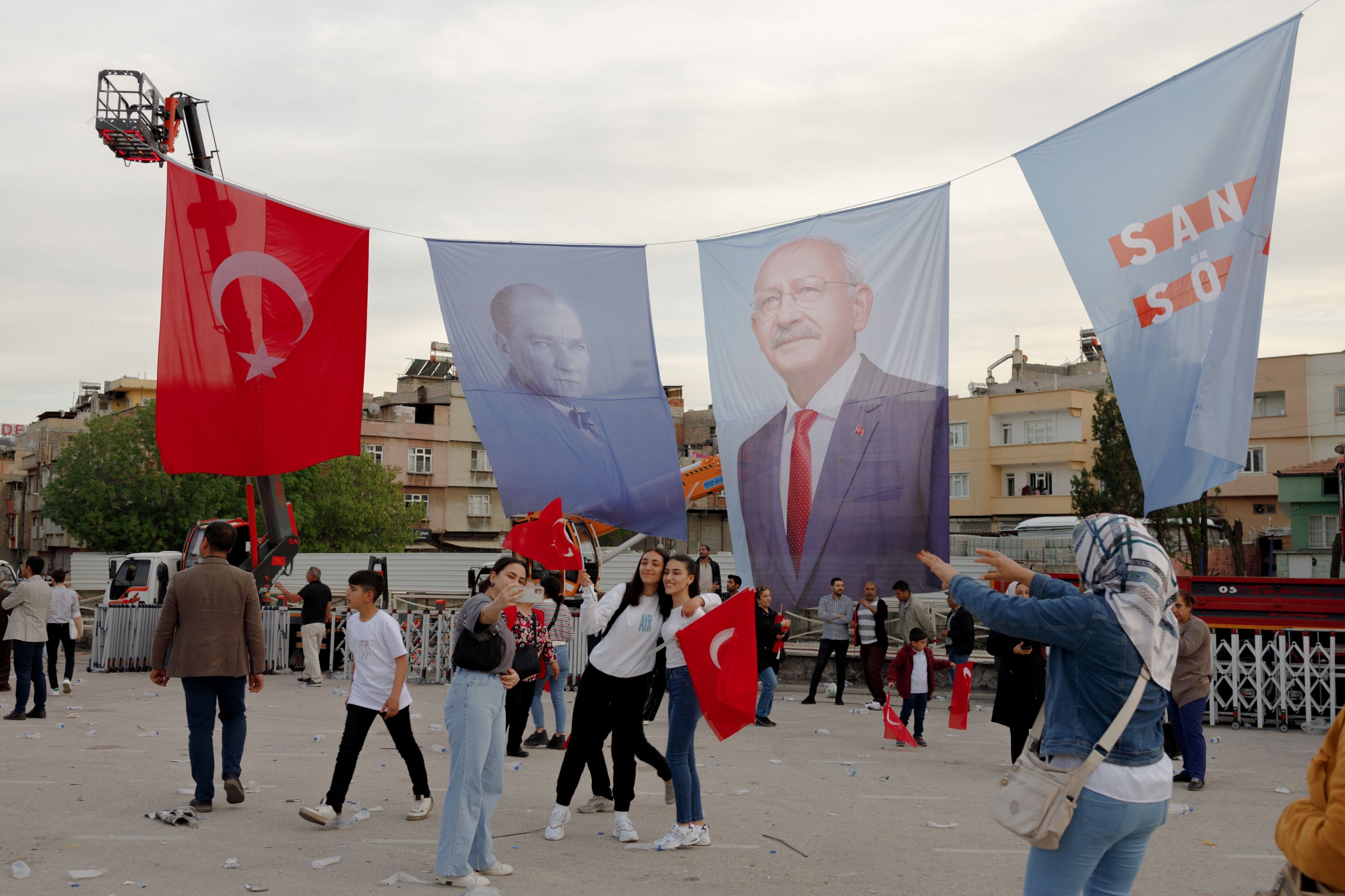
Many observers have branded the upcoming parliamentary elections in Turkey the most consequential in years, with polls suggesting that President Recep Tayyip Erdogan and his Justice and Development Party (AKP) could lose power for the first time since 2002.
But for many Syrians in Turkey, there is little to distinguish the government and the main opposition coalition, with both promising to remove Syrian refugees from the country and ratcheting up hostile rhetoric against immigrants and asylum-seekers.
Syrians with Turkish nationality and eligible to vote, though not facing the same risk of deportation as the "guests" who fled the war in Turkey's southern neighbour, face an uninspiring choice.
“I looked at both the current government and its opposition programmes, they almost look the same,” said Hatim al-Abdullah, an engineering student from a bustling street in Gaziantep, southeastern Turkey, filled with electoral billboards in both Turkish and Arabic.
“I have not decided yet, but likely I will vote for the same government because I think it is more stable."
The 25-year-old is one of more than 200,000 Syrians who have been granted Turkish citizenship since their arrival in Turkey.
Zakaria Malahfji, a member of the Syrian National Coalition in Turkey, which represents the political interests of Syrian citizens in the country, said that only 140,000 of those naturalised Syrians have reached the minimum voting age.
He added that many of those would still not bother to use their vote, but those that did vote would be a consequential bloc.
“Since migration has been the main topic of these elections, they are at the core of the vote, and their voting trends will definitely send a message,” he said.
The right to vote
Currently Turkey hosts about four million refugees, the majority of them Syrians, although under Turkish law the latter are regarded as "guests" and do not hold official refugee status.
Syrians under this temporary protection can only receive citizenship through a lengthy process that examines their contributions to society through their education and jobs.
The opposition National Alliance has accused the government of granting Syrians citizenship in order to gain an advantage in the elections, believing them more inclined towards the AKP.
'Nearly all political parties, with the exception of pro-Kurdish HDP, are running on a platform for voluntary or involuntary repatriation of Syrians'
- Asli Aydintasbas, European Council on Foreign Relations
“Polls tend to indicate that new citizens, especially Syrians, will overwhelmingly support the government of President Recep Tayyip Erdogan because of the opposition’s views toward immigrants,” explained Malahfji.
Asli Aydintasbas, senior policy fellow at the European Council on Foreign Relations, said the immigration and refugee issue had become a driving force in Turkish politics.
“Nearly all political parties, with the exception of pro-Kurdish HDP, are running on a platform for voluntary or involuntary repatriation of Syrians,” she explained.
This past March, the opposition candidate Kemal Kilicdaroglu travelled to the Turkish-Syrian border, where the majority of Syrians have settled in urban areas, and vowed to normalise relations with Syrian President Bashar al-Assad and deport refugees within two years of the elections.
For many Syrians in Turkey that would be a tragedy, pushing those who can vote to try to block such a plan by voting for the AKP.
'Lesser of two evils'
Although Erdogan also announced a similar plan to voluntarily return one million Syrians to their homeland, Syrian voters still see him as “the lesser of two evils,” said Abdulkader Alflefl, another member of the Syrian National Council in Turkey.
“The AKP was also the only ruling party that established direct communications with Syrian dual nationals by using their Arabic mother tongue, in order to encourage them to vote for AKP,” Alflefl says.
"All the other parties ignored us."
In the city of Gaziantep, which was recently struck by an earthquake and where half a million refugees have resettled, Syrians have mixed feelings ahead of the elections.
The southeastern provinces had historically seen strong support for the AKP, but the earthquake aftermath has seen many Erdogan supporters turn against the president.
Erdogan's recent decision to resume political relations with the Syrian government has left many Syrians in Turkey perplexed, said Aydintasbas. There’s now widespread uncertainty about Syrians' safety in Turkey, regardless of who wins the election.
Some are willing to give the opposition a try.
“I am thinking of giving a chance to a new leader, Erdogan was in power for too long,” said Ahmad, who did not want to share his last name.
“This country needs to see someone else.”
Others prefer giving their vote to neither presidential candidate and will back independent candidates.
Ezzat, a Syrian-Palestinian economics student who will vote for the first time since he received Turkish citizenship three years ago, was curious to explore alternatives and said he would vote for the Labour and Freedom Alliance - who are not fielding a presidential candidate - in the parliamentary elections.
“I'm not voting for either presidential candidate, as they've been trying to normalise relations with the Assad regime and promising to send Syrians back, which is resulting in more racism and hate against us,” he said.
Fears of reprisal
Although many ridicule Sorkys – a negative slang term blending the words “Syrian” and “Turk” – for backing Erdogan and his policies, thus helping his chances to win the elections, Alflefl said they simply viewed him as the current best guarantor of the community’s future in Turkey.
“I do not think that from one day to another Syrians will be put on buses and sent back to Syria, whether we have a post-Erdogan opposition government or a continuation of the Erdogan regime,” reassured Aydintasbas.
' I don’t think the elections are going to make a huge difference for us Syrians who are well integrated'
- Hatim al-Abdullah, Syrian
“But there will be a greater desire to work with the EU to create conditions for their return, and an opposition government would use that to negotiate for a better deal with the EU.”
As election day gets closer, and a widespread economic malaise influences voting behaviour, polls show the two presidential candidates divided by a small margin.
The Syrian diaspora in Turkey is aware that the elections could be the start of a new era for them, but dual citizens are trying to stay positive about their future in the place they now call home.
“This year for the first time, I’m voting as a Turkish here. There is no difference between me and any other Turkish citizen, we both have the same rights,” said Abdullah.
“So I don’t think the elections are going to make a huge difference for us Syrians who are well integrated.”
Middle East Eye propose une couverture et une analyse indépendantes et incomparables du Moyen-Orient, de l’Afrique du Nord et d’autres régions du monde. Pour en savoir plus sur la reprise de ce contenu et les frais qui s’appliquent, veuillez remplir ce formulaire [en anglais]. Pour en savoir plus sur MEE, cliquez ici [en anglais].


